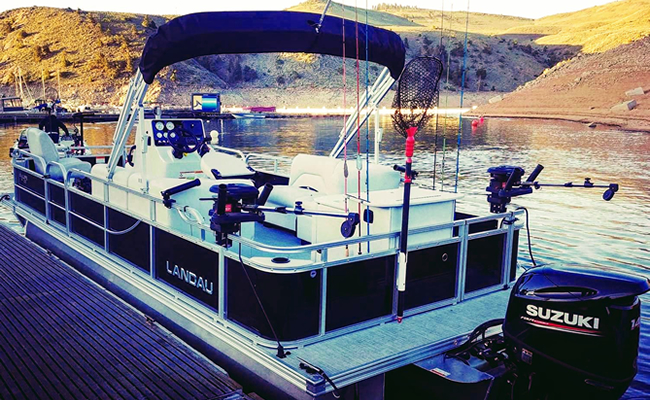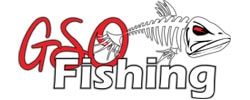
As boating and fishing enthusiasts celebrate National Boat Safety Week, it’s crucial to prioritize safety while enjoying the beautiful waters of Colorado. Whether you’re a seasoned angler or a first-time boater, following safety guidelines is essential for a memorable and incident-free experience. In this blog post, we’ll discuss ten safety tips to remember when boating and fishing in Colorado. Plus, we’ve added two bonus tips every angler should know and follow.
One: Know and Follow Colorado Boating Laws:
Familiarize yourself with Colorado’s boating laws, regulations, and restrictions. Understand speed limits, no-wake zones, and other specific rules for the bodies of water you’ll be visiting. Complying with these regulations ensures your safety and contributes to the preservation of Colorado’s natural resources.
Two: Check Weather Conditions:
Before setting sail, check the weather forecast and monitor any updates during your trip. Colorado’s weather can be unpredictable, and storms can develop rapidly, creating hazardous conditions. Postpone your boating or fishing trip if inclement weather is expected.
Three: Inform Others of Your Plans:
Before heading out on your boating or fishing adventure, inform a trusted person of your itinerary, including your planned departure and return times. Share your location, the number of passengers on board, and any specific fishing spots or activities you’ll be engaging in. This information can be crucial in case of an emergency.
Four: Carry Safety Equipment:
Always have essential safety equipment on board, including a fire extinguisher, a sound-producing device (such as a whistle or horn), a first-aid kit, and a throwable flotation device. These items can prove invaluable in emergencies and comply with legal requirements.
Five: Maintain Your Boat and Gear:
Regularly inspect and maintain your boat, engine, and fishing equipment to ensure they are in good working condition. Replace worn-out parts like boat winch straps, check fuel levels, and keep your vessel clean and organized. Well-maintained equipment reduces the risk of breakdowns or accidents during your trip.
Six: Follow Boat Capacity Limits:
Every boat has a maximum capacity specified by the manufacturer, taking into account factors like size, weight, and safety features. Ensure that you are aware of the boat’s capacity and never exceed it. The capacity limit is set to maintain stability and provide enough safety equipment for everyone on board.
Seven: Wear Personal Floatation Devices (PFDs):
Always wear a properly fitted and approved Personal Floatation Device (PFD) while boating or fishing. Ensure everyone on board has a PFD readily accessible and knows how to wear it correctly. Children 12 and under are required by law to wear a life jacket. PFDs significantly increase your chances of survival in case of an accident or unexpected water entry.
Eight: Stay Sober and Avoid Distracted Boating:
Operating a boat under alcohol or drugs is illegal and dangerous. Alcohol’s effects are amplified on the water due to environmental factors like sun, wind, and dehydration. Additionally, avoid distractions like texting or operating electronic devices while boating to maintain focus and react promptly to potential hazards.
Nine: Maintain Proper Distance:
Maintain a safe distance from other boats, docks, and objects in the water to avoid collisions. Be mindful of your surroundings and watch for swimmers, divers, and other watercraft. Slow down and approach fishing areas, no-wake zones, marinas, and shorelines cautiously.
Ten: Practice Fire Safety:
Prevent fires on board by properly storing and handling flammable materials. Have a fire extinguisher readily available and familiarize yourself with its use. Regularly inspect electrical systems and wiring for signs of damage or wear.
Bonus Tips That Make A Huge Difference!
Eleven: Learn Basic First Aid and CPR:
Knowing basic first aid and cardiopulmonary resuscitation (CPR) can be invaluable in emergencies. Consider taking a boating safety course that includes these skills or enroll in a standalone first aid and CPR course. Being prepared to handle medical situations can save lives.
Twelve: Be Mindful of Wildlife:
Colorado’s waterways are home to a diverse range of wildlife, including birds, fish, and mammals. Respect their habitats and be cautious while navigating through sensitive areas. Avoid disturbing nesting sites or fishing in prohibited zones to ensure the preservation of these natural ecosystems.
Whether it’s National Boat Safety Week or not, it’s vital to prioritize safety while enjoying Colorado’s stunning lakes and rivers. Following these twelve essential safety tips, you can minimize risks, protect yourself and others, and make the most of your boating and fishing adventures. Embrace responsible boating practices, respect the environment, and cherish the serenity that Colorado’s waters offer. Happy boating!
Questions
If you have any questions, click our chat button here on our website, visit our Contact Us page, or email us at info@gsofishing.com. We are here to help. – Team GSO Fishing
